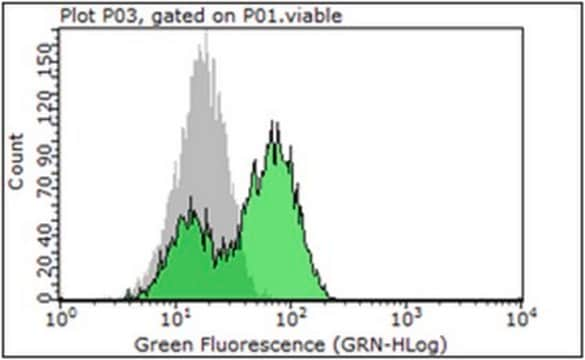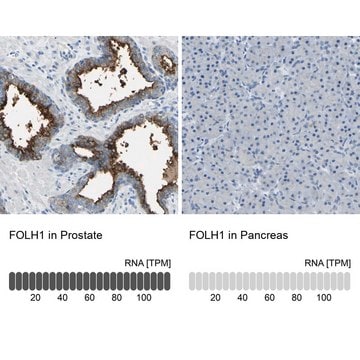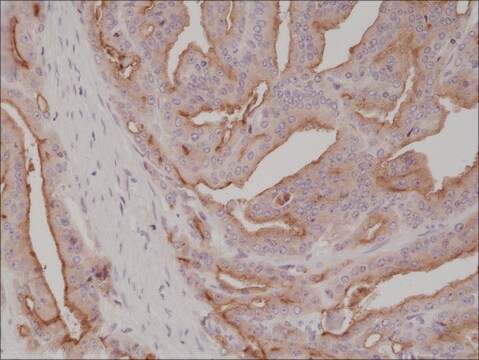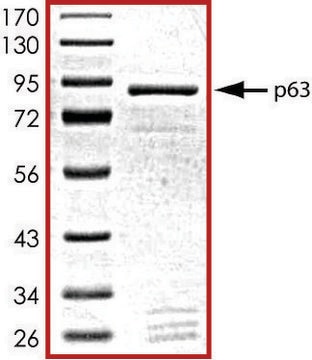327R-1
PSMA (EP192) Rabbit Monoclonal Primary Antibody
Sinónimos:
Prostate-specific membrane antigen
About This Item
Productos recomendados
biological source
rabbit
Quality Level
100
500
conjugate
unconjugated
antibody form
culture supernatant
antibody product type
primary antibodies
clone
EP192, monoclonal
description
For In Vitro Diagnostic Use in Select Regions
form
buffered aqueous solution
species reactivity
human
packaging
vial of 0.1 mL concentrate (327R-14)
vial of 0.1 mL concentrate Research Use Only (327R-14-RUO)
vial of 0.5 mL concentrate (327R-15)
vial of 1.0 mL concentrate (327R-16)
vial of 1.0 mL concentrate Research Use Only (327R-16-RUO)
vial of 1.0 mL pre-dilute Research Use Only (327R-17-RUO)
vial of 1.0 mL pre-dilute ready-to-use (327R-17)
vial of 7.0 mL pre-dilute ready-to-use (327R-18)
vial of 7.0 mL pre-dilute ready-to-use Research Use Only (327R-18-RUO)
manufacturer/tradename
Cell Marque™
technique(s)
immunohistochemistry (formalin-fixed, paraffin-embedded sections): 1:10-1:40 (concentrated)
isotype
IgG
control
prostate
shipped in
wet ice
storage temp.
2-8°C
visualization
cytoplasmic, membranous
Gene Information
human ... FOLH1(2346)
Categorías relacionadas
General description
Quality
 IVD |  IVD |  IVD |  RUO |
Physical form
Preparation Note
Note: This requires a keycode which can be found on your packaging or product label.
Download the latest released IFU
Note: This IFU may not apply to your specific product lot.
Other Notes
Legal Information
¿No encuentra el producto adecuado?
Pruebe nuestro Herramienta de selección de productos.
Storage Class
12 - Non Combustible Liquids
wgk_germany
WGK 2
Elija entre una de las versiones más recientes:
Certificados de análisis (COA)
¿No ve la versión correcta?
Si necesita una versión concreta, puede buscar un certificado específico por el número de lote.
¿Ya tiene este producto?
Encuentre la documentación para los productos que ha comprado recientemente en la Biblioteca de documentos.
Nuestro equipo de científicos tiene experiencia en todas las áreas de investigación: Ciencias de la vida, Ciencia de los materiales, Síntesis química, Cromatografía, Analítica y muchas otras.
Póngase en contacto con el Servicio técnico








